DotNetNuke vs Drupal for Large Government Agencies

Takeaway: Drupal is the superior choice for large government agencies compared to DotNetNuke CMS due to its greater customization, flexibility, security, scalability, and adaptability to emerging technologies. While DNN might be easier to use and integrate with Microsoft technologies, Drupal's robust features and active community make it better suited for the complex needs and long-term digital strategies of large government entities.
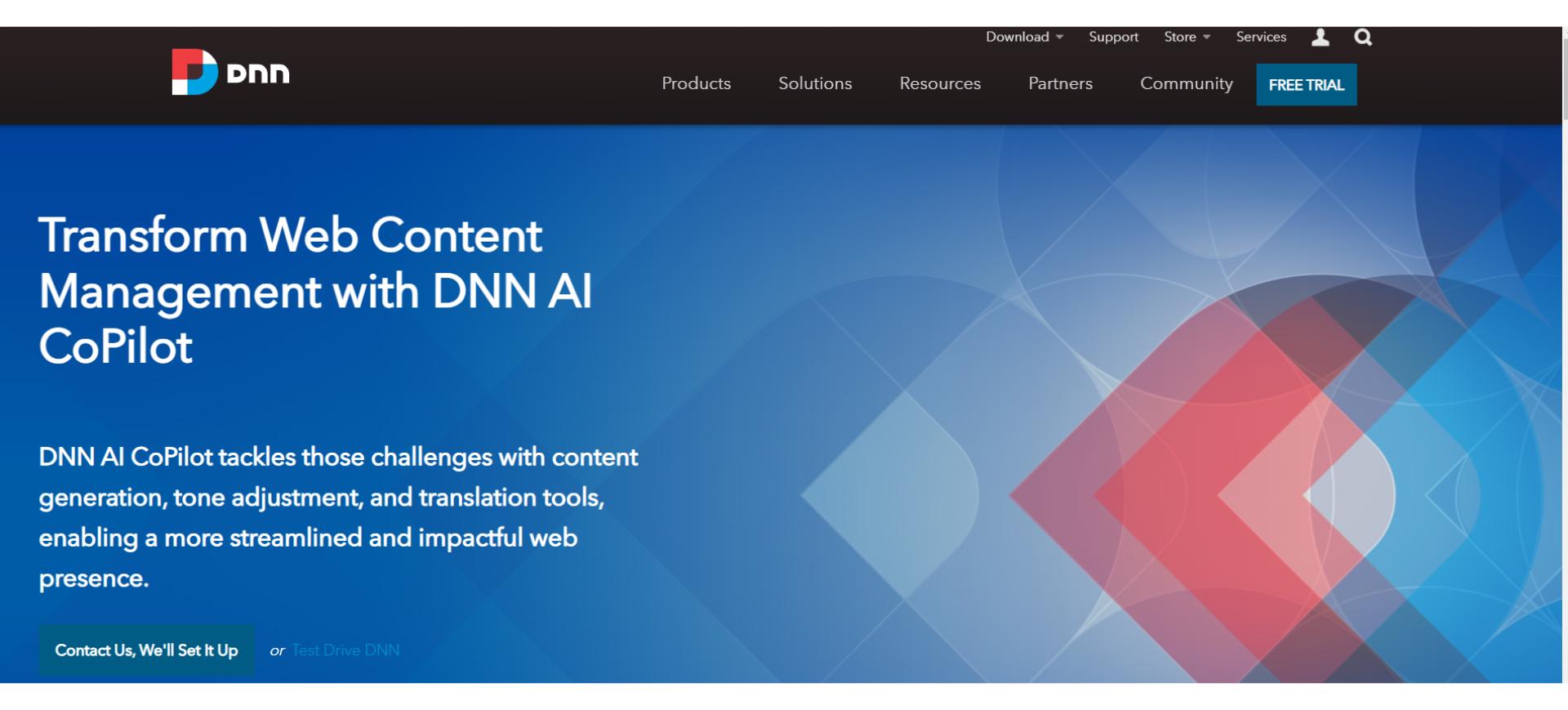
SEE OUR WEBSITE MIGRATION SERVICE
What is DotNetNuke?
What is DNN? DNN, or DotNetNuke, is an open-source CMS and web application framework built on Microsoft's .NET platform. It's used to create and manage websites, intranets, and web applications. DNN includes features for managing content, authenticating users, and expanding functionality through modules and themes.
Evoq, a commercial product built on top of DNN, provides more enterprise-level features like advanced workflow management, multi-site capabilities, and enhanced content optimization tools.
In this DNN CMS review, I explore how it compares to Drupal, particularly for government use cases.
Current adoption trends of DNN vs Drupal in large cities and counties
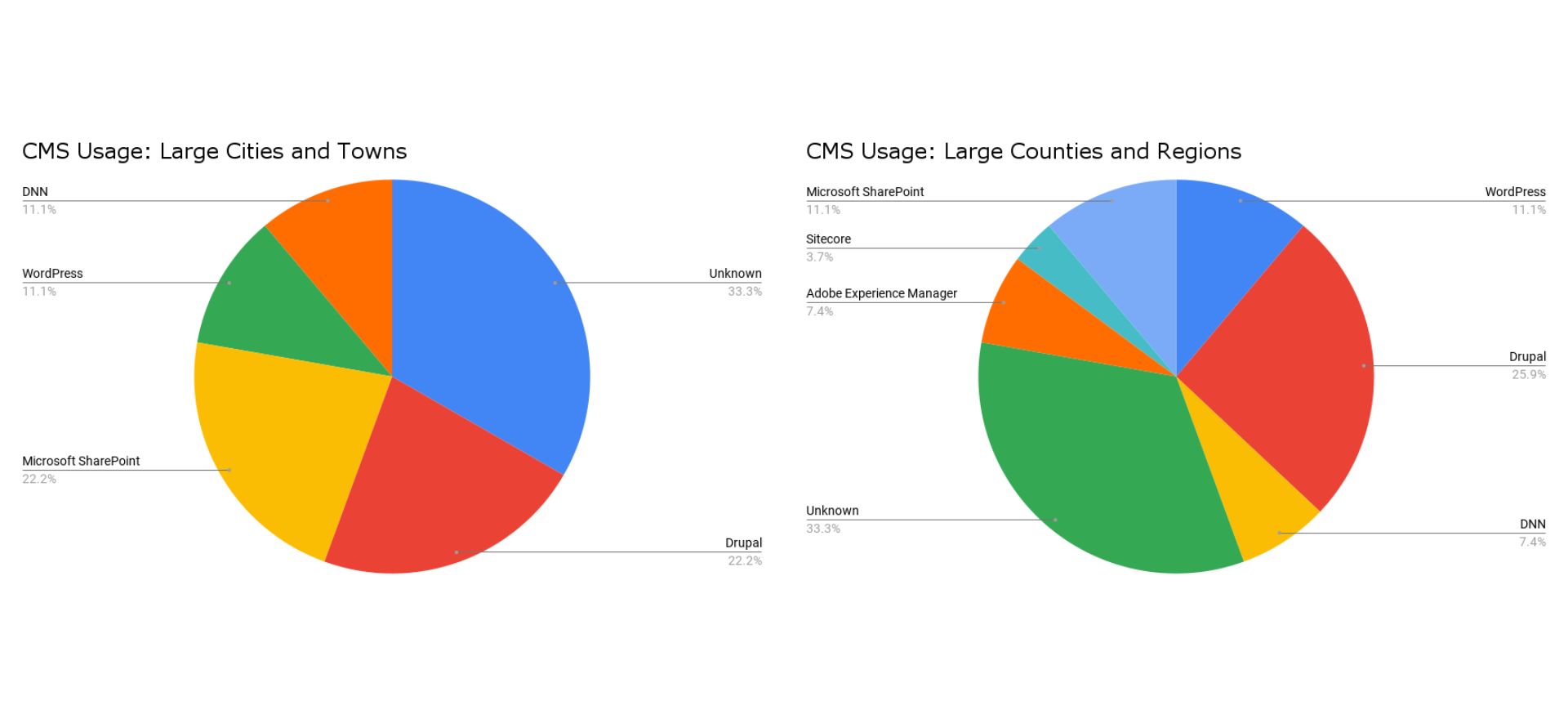
For large cities (population more than 1 million):
- DNN has an 11.1% market share, tying with WordPress in third place.
- This puts DNN behind Microsoft SharePoint and Drupal, which both lead with a 22.2% market share each.
For large counties (population more than 1.5 million):
- DNN has a 7.4% market share, tying with Adobe Experience Manager.
- This puts DNN behind Drupal (25.9% market share), WordPress, and Microsoft SharePoint (both at 11.1%).
These tell us that DNN has a presence in both large cities and counties, but it's not the leading CMS in either category. DNN's adoption rate is slightly higher in large cities as well compared to large counties, but Drupal has a significantly higher adoption rate in both cases.
It's worth noting that these figures represent only the identifiable CMS usage. There's a significant portion of unidentifiable CMS usage in both categories (33.3% for both large cities and counties), which could potentially include some DNN installations that weren't detected by our study's methodology.
Let’s begin the comparison.
Which CMS has better content management and workflow for government websites?
Drupal comes out on top for government websites, especially those with complex content management needs, sophisticated workflows, and a requirement for transparency and accountability. Its flexibility, robust workflow management, and advanced content organization make it better suited for larger or more intricate government sites.
DNN could still be a strong choice for smaller government entities or those prioritizing ease of use and straightforward content management, but overall, Drupal offers more comprehensive capabilities for the demands of government websites.
See the full comparison below.
Content management
Drupal: Known for its flexible and granular content management, Drupal is ideal for complex government websites with diverse content needs. Its custom content types and taxonomies enhance the organization, searchability, and navigation of government information, making it particularly suited for larger or more intricate sites.
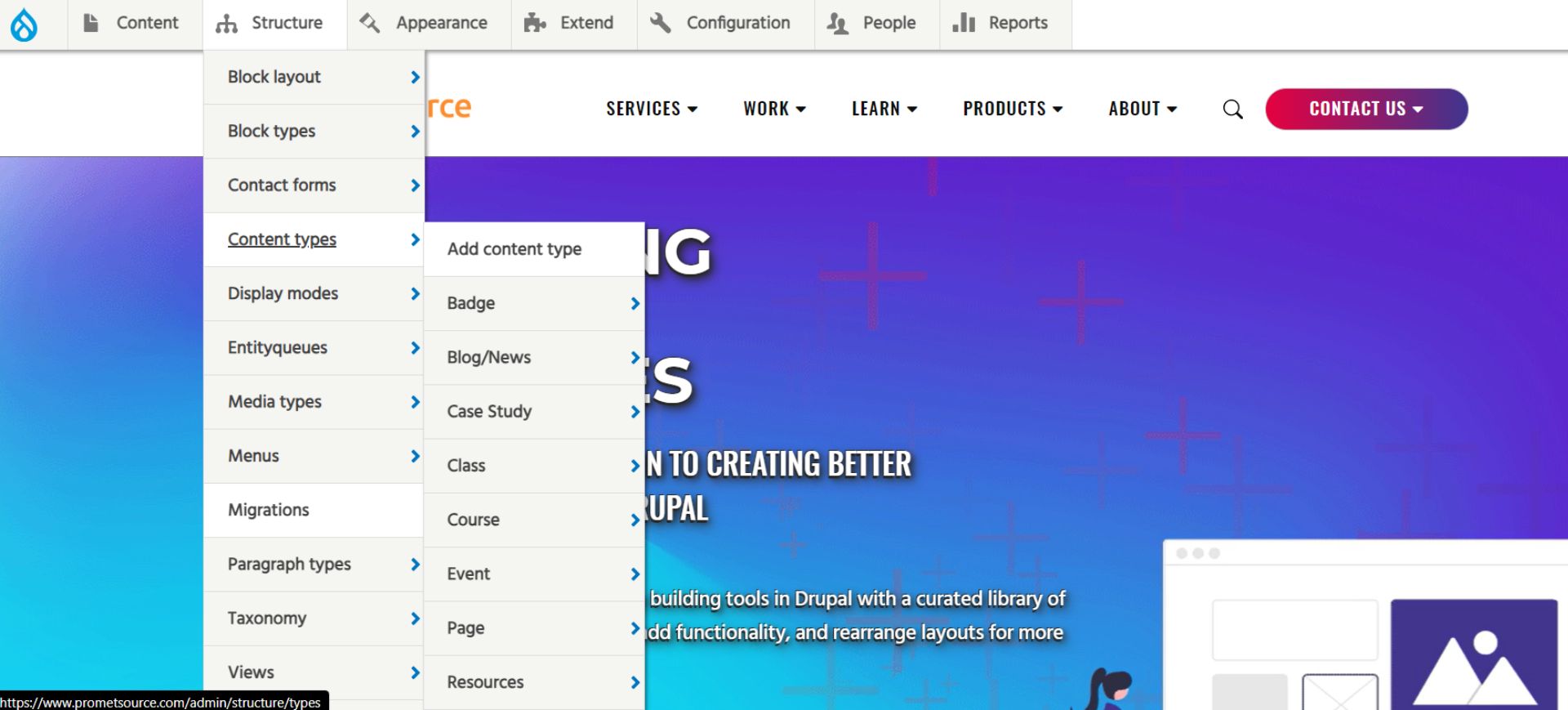
DNN: While DNN's content management interface is generally more user-friendly, which is advantageous for government agencies with limited technical resources or a focus on ease of use. Its module-based approach allows for straightforward creation of flexible layouts, suitable for simpler government websites.
Workflow management
Drupal: Offers robust and customizable workflow management features, supporting the complex approval processes often required in government communications. Its comprehensive version control and auditing capabilities also align well with government needs for transparency and accountability.
DNN: Provides built-in workflow states and role-based assignments, which can suffice for smaller government entities with less complex approval processes. DNN's centralized workflow management offers a clear overview of the content approval process, aiding coordination across departments.
Additional tools
Drupal: Component-based editing tools, like Provus®, give non-technical staff the ability to manage complex pages while maintaining design consistency, which is a significant advantage for government websites.
DNN: Also supports scheduled publishing, ensuring timely release of critical government information, similar to Drupal.
Which CMS offers better customization and flexibility for government websites?
Drupal offers better customization and flexibility overall, particularly for complex government websites that require advanced theming, extensive module options, and robust API integration.
DNN may be preferable for government agencies deeply embedded in the .NET ecosystem or those needing simpler, more familiar development environments.
See the full comparison below.
Module and API extensibility
Drupal: With a vast ecosystem of over 50,000 contributed modules, Drupal provides extensive options for adding functionality to government websites. Its robust API and hooks system enable developers to create highly specialized or customized modules, offering superior flexibility for complex requirements.
DNN: DNN supports module-based extensibility through custom modules built using ASP.NET Web Forms, MVC, or SPA frameworks. This is advantageous for government agencies already invested in the .NET ecosystem, providing a familiar environment for .NET developers. You can also purchase modules from their store.
Theming and design flexibility
Drupal: Features a flexible theming system powered by the Twig templating engine, allowing for more powerful, responsive, and accessible design options—crucial for government websites. Drupal also has a built-in configuration management system that streamlines managing and deploying changes across environments, especially valuable for sites with staging and production environments.
Related: 21st Century IDEA: Best Practice for Government Sites →
DNN: Allows for custom theme development using HTML or ASCX files, which might be simpler for developers with less frontend expertise. However, this approach may be less flexible compared to Drupal’s theming capabilities.
Integrations
Drupal: Strong support for headless CMS setups and third-party integrations gives government websites more options for creating decoupled architectures and connecting with external systems.
DNN: The platform’s event system allows developers to hook into various core events, providing good extensibility, though it may not be as comprehensive as Drupal’s API-first architecture.
Which CMS offers superior security and compliance for government websites?
Drupal offers superior security and compliance features overall, especially for government websites requiring extensive customization and rapid response to security threats.
DNN provides robust security and compliance options, although their documentation as to what is included in the free platform is confusing.
See the full comparison below.
Security monitoring and updates
Drupal: Features a dedicated Security Team that actively monitors and addresses security concerns, releasing regular advisories and patches. The open-source nature of Drupal often facilitates faster identification and resolution of vulnerabilities.
DNN: Has its Security Task Force that also releases security updates. However, DNN’s security updates seem slower than Drupal’s based on their releases.
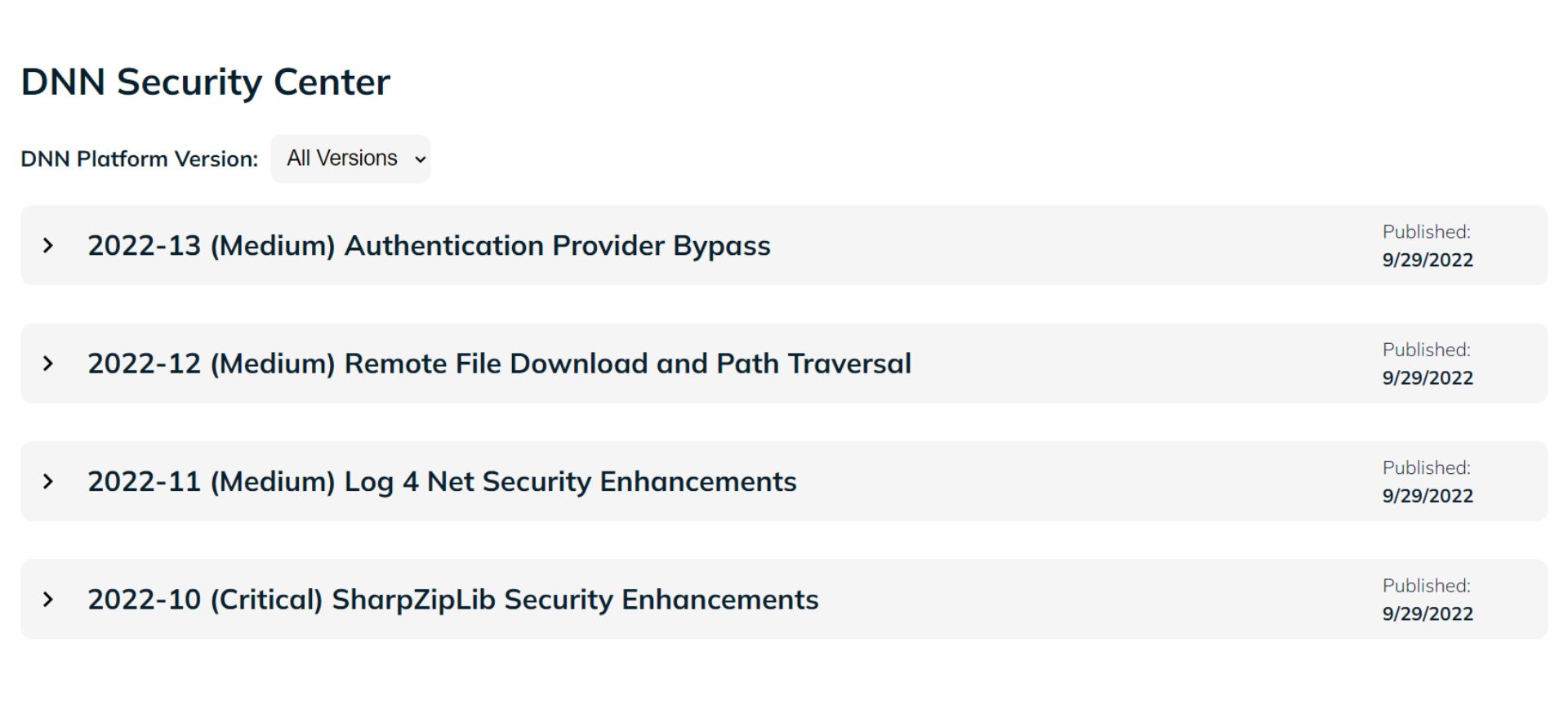
Built-in security features
Drupal: Includes robust built-in security features such as brute-force detection, database encryption, and field validation, offering a solid foundation for securing sensitive government information.
DNN: Leverages the Microsoft security infrastructure, which benefits government agencies already invested in the Microsoft ecosystem. DNN also provides security tools like firewalls and malware scanners through its extensions directory.
Access control
Drupal: Provides a granular, role-based permissions system for precise control over user access, which is crucial for managing sensitive government data and operations.
DNN: It’s unclear whether the free platform offers similar granular, permission-based access control from individual documents to entire sites since the documentation conflicts. It does say in their comparison to their paid platforms that they offer only role-based security for DNN.
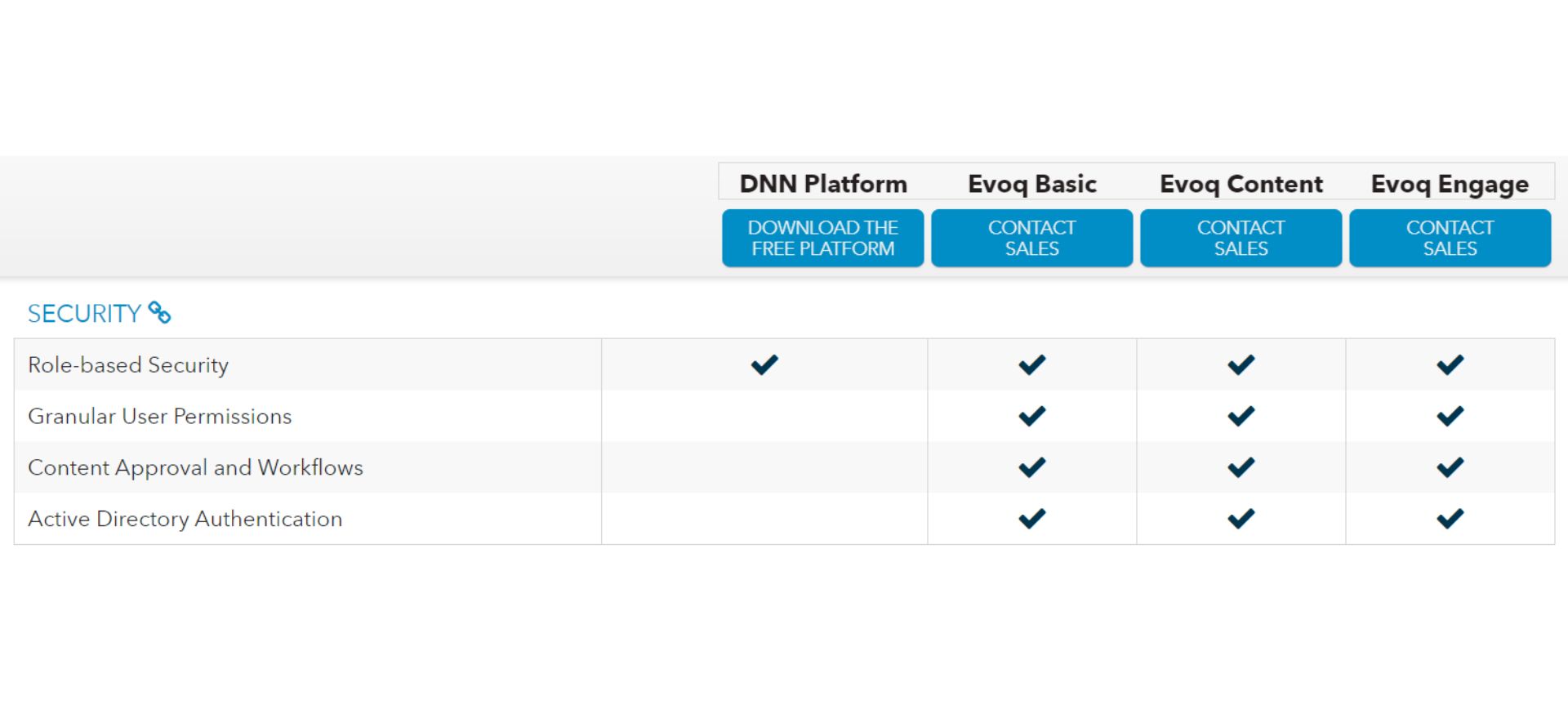
Compliance
Drupal: Supports various modules to help align with GDPR, HIPAA, and other compliance standards, which can be customized to meet specific government requirements.
DNN: Compliant with GDPR out of the box, but will also need modules to be fully compliant.
Which CMS is more accessible to users?
Drupal offers more comprehensive accessibility features, including adherence to advanced standards and robust multilingual support, making it particularly well-suited for government websites with stringent accessibility and multilingual needs.
DNN provides essential accessibility features and ease of use for basic requirements, which can be beneficial for government agencies with limited technical resources.
See the full comparison below.
Accessibility standards
Drupal: Adheres to WCAG 2.0 Level AA standards, with ongoing WCAG 2.1 AA compliance efforts. This positions Drupal well for meeting strict accessibility guidelines required for government websites.
DNN: Offers regular accessibility features and modules, making it relatively straightforward to implement basic accessibility measures.
Accessibility features
Drupal: Utilizes semantic HTML and WAI-ARIA practices to enhance the accessibility of dynamic content, which is crucial for complex government websites with interactive features. It also includes features such as aural alerts for screen readers and controlled tab order for keyboard navigation.
Related: 5 Most Common Accessibility Errors on County Websites →
DNN: Prioritizes mobile accessibility through responsive web design capabilities, which is important for government services. DNN’s easy-to-use interface allows content creators to manage accessibility features without extensive technical knowledge.
Multilingual support
Drupal: Provides robust multilingual capabilities built into its core, supporting over 100 languages out-of-the-box. Its translation interface is user-friendly, making it easier to manage multilingual content. The extensive documentation and community support for multilingual features give Drupal an advantage for diverse populations.
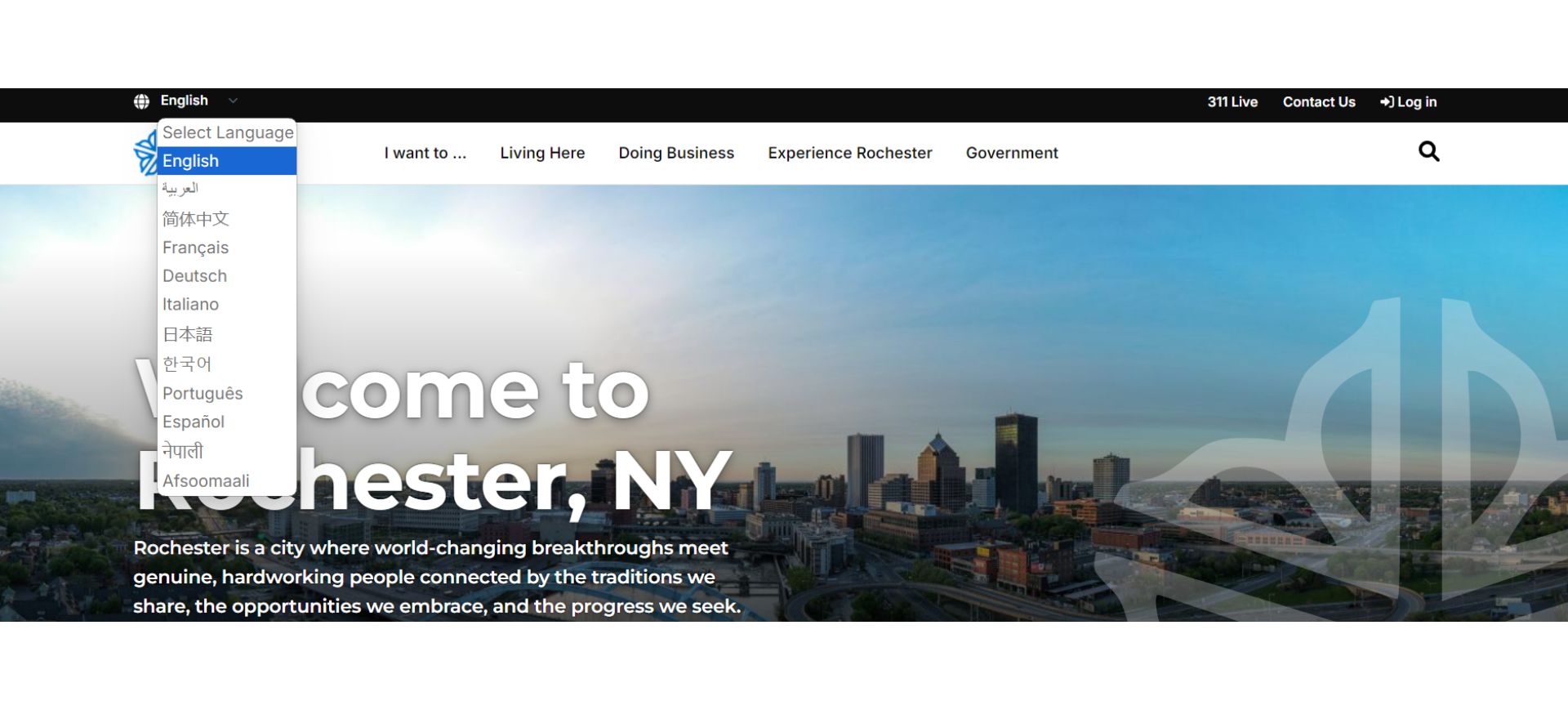
DNN: Also supports multilingual sites, but the implementation and documentation are not as extensive as Drupal’s, which could impact ease of use for complex multilingual requirements.
Which CMS is more scalable?
Drupal excels in scalability with its architecture designed for large-scale deployments, advanced caching, and robust multisite capabilities. This makes it highly suitable for growing government websites with extensive and complex needs.
DNN can handle growth but may face limitations in very large-scale environments and rely more on vendor-specific solutions for scalability.
See the full comparison below.
Architecture and traffic handling
Drupal: Designed for large-scale deployments, Drupal is well-suited for handling high traffic volumes typical of major city and county websites. Its architecture supports efficient management of extensive content and high user loads.
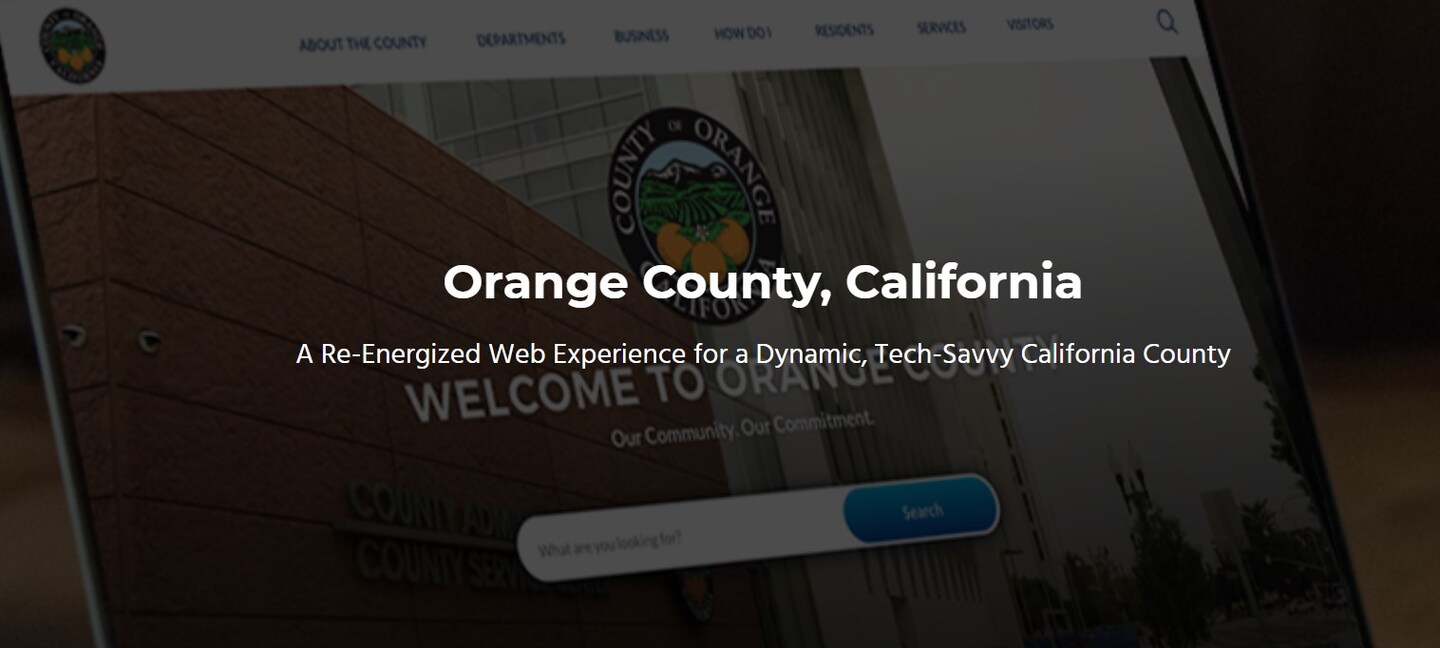
DNN: Scalable to handle increased user loads by utilizing multiple web and database servers, but careful planning and testing are required to ensure all modules work together seamlessly. This allows the workload to be distributed across several servers to maintain smooth performance as traffic grows.
Caching and performance
Drupal: Features advanced caching mechanisms and database optimization, which help efficiently manage large volumes of content and high traffic. This is crucial for growing government websites with extensive information resources.
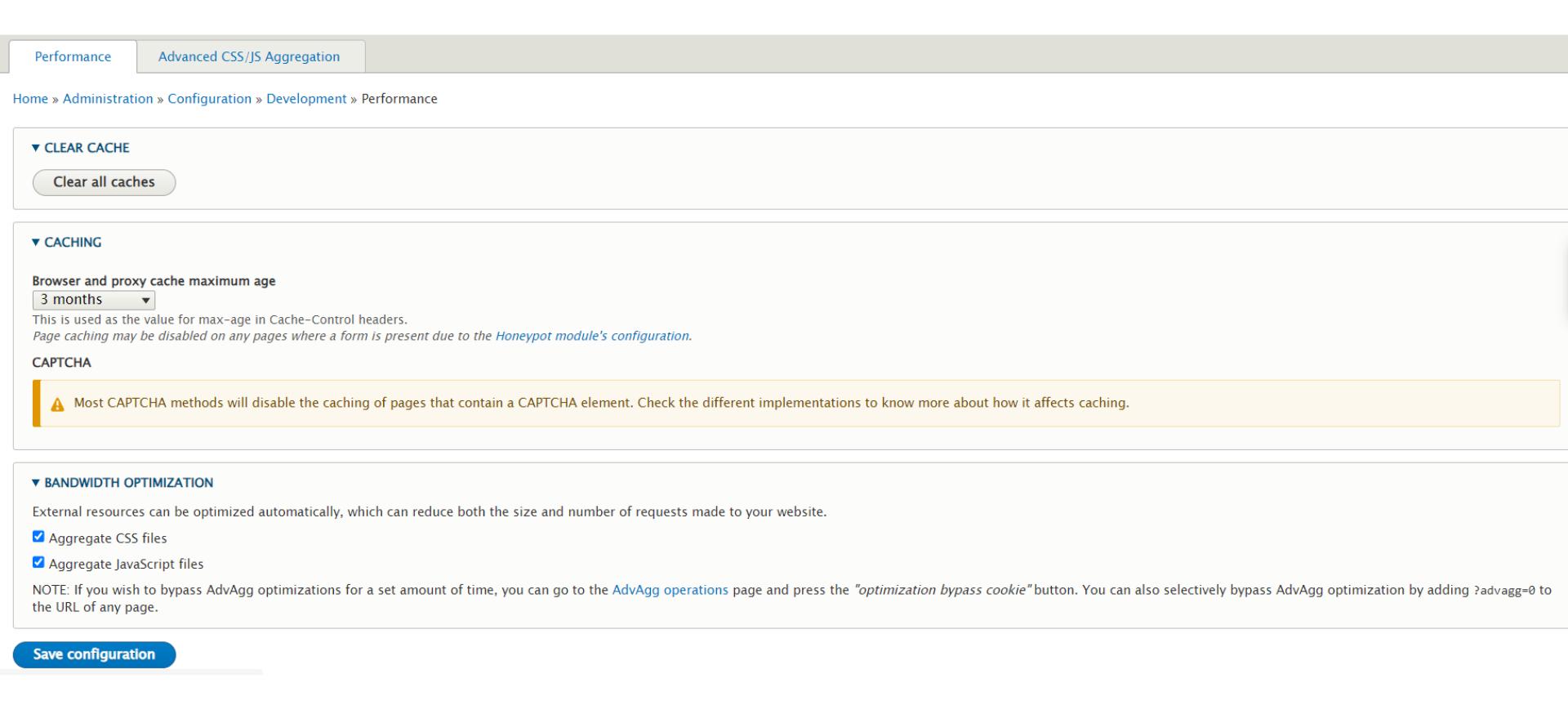
DNN: Performance at scale is less well-documented, which may raise concerns for rapidly expanding government digital services. The websites I’ve seen use Evoq instead of the open-source DNN.
Multisite capabilities
Drupal: Offers robust multisite capabilities, allowing the management of multiple sites from a single codebase. This is ideal for large counties or cities managing various department websites.
DNN: Provides multisite management through site groups, where hosts and superhosts can manage the websites.
Cloud hosting and infrastructure
Drupal: Offers compatibility with various hosting options, providing more flexibility for government agencies to choose scalable infrastructure solutions.
DNN: Also supports cloud hosting options, but Drupal's broader cloud compatibility offers additional flexibility.
Which CMS has more reliable support options?
Drupal offers more reliable support options due to its large and active community, extensive documentation, and wide range of support providers.
While DNN also has community resources and gives the option to choose support providers, its documentation can be confusing, which can be an issue if you’re looking to do things on your own.
See the full comparison below.
Community support
Drupal: Benefits from a large and active global community with over a million members. This vibrant community supports each other through extensive documentation, tutorials, and events, making it easier to find solutions and get help.
DNN: Has a smaller, but dedicated community. This can result in fewer resources and potentially slower response times for complex issues compared to Drupal.
Documentation
Drupal: Provides comprehensive and regularly updated documentation, with extensive community-contributed guides that cover a wide range of government use cases.
DNN: Documentation is unclear at times, especially since there are instances in which the free DNN and the paid Evoq options are not clearly defined. It could make it more challenging to address complex government scenarios.
Commercial support
Drupal: Offers various commercial support options through a large ecosystem of vendors, providing more choice and competitive pricing for government agencies.
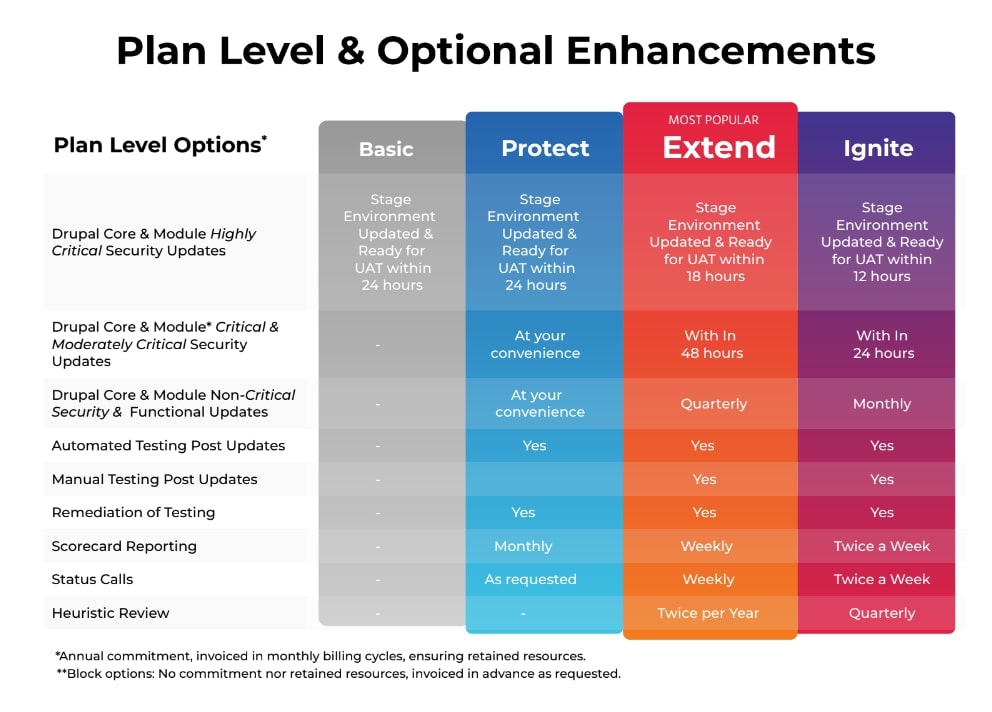
DNN: Primarily offers commercial support through DNN Corp, which may offer more standardized support but less flexibility in choosing service providers.
Vendor lock-in:
Drupal: Its open-source nature allows government agencies to avoid vendor lock-in, offering the freedom to switch support providers or bring support in-house as needed.
DNN: As it’s also open source, government agencies also have a variety of support options. A subscription to the paid Evoq options is needed to access the DNN Customer Success Network.
Which CMS is adapting better to emerging technologies?
Drupal is better at adapting to emerging technologies due to its active community, extensive AI-related modules, and flexible API-first architecture.
DNN may lag in this regard, with slower adoption and fewer advancements in emerging technology integrations.
See the full comparison below.
Adaptability to emerging technologies
Drupal: Demonstrates greater adaptability, with numerous AI-related modules actively developed and maintained by its community. This includes integrations like the OpenAI module for features such as content generation and meta tag optimization, which can streamline content creation for government websites. Drupal’s API-first architecture further facilitates integration with new technologies, keeping the platform current with technological advancements.
DNN: Shows slower adaptation to emerging technologies like AI, with fewer documented AI-focused extensions or integrations. This may present challenges in rapidly adopting and integrating new technologies.
AI integration
Drupal: Features notable AI capabilities, including our Promethia chatbot that has been adopted by Martin County (as demonstrated in our Drupal4Gov webinar), which demonstrates the platform’s ability to incorporate advanced AI features specifically tailored for government needs.
DNN: While it has some AI capabilities (like the DNN AI CoPilot), they are less documented and not as widely implemented as Drupal's AI-related modules. DNN lacks comparable examples of government-specific AI implementations, potentially limiting its appeal to forward-thinking government agencies.
Community and technological advancements
Drupal: Benefits from an active community that regularly contributes modules leveraging new technologies, ensuring the platform stays relevant and up-to-date with evolving government digital needs.
DNN: Has a smaller community and a more centralized development model, which may result in slower adoption of emerging technologies compared to Drupal.
Drupal emerges as the clear winner in this comparison
Drupal consistently outperforms DNN in critical areas for government websites. DNN, while offering a user-friendly interface and solid integration with Microsoft technologies, may be better suited for smaller government entities or those heavily invested in the Microsoft ecosystem.
However, its more limited extensibility and slower adaptation to new technologies could constrain its ability to meet the long-term needs of growing government entities.
For large cities and counties anticipating significant growth in digital services and citizen engagement, Drupal is the recommended choice due to its superior scalability, flexibility, and adaptability.
Recommendations for growing cities and counties
- Evaluate your current CMS costs
- Assess your in-house technical capabilities
- Determine your scalability needs
- Consider integration requirements
- Analyze security and compliance needs
- Check your future-proofing and migration considerations
Want to go in-depth with these recommendations? Read Choosing the Best Content Management System for Local Government.
Government entities currently using DNN should consider migrating to Drupal to future-proof their digital infrastructure and better serve their growing and diverse populations.
Work with Promet Source on a DotNetNuke to Drupal migration
Drupal empowers government agencies to create responsive, secure, and citizen-centric digital experiences that can evolve with emerging technologies.
Make the switch today—our expert team ensures a seamless CMS transition. Our extensive experience in government website transitions means we understand your unique challenges and requirements.
Contact us for a free consultation and learn more about how Drupal can revolutionize your agency's online presence, enhance citizen engagement, and future-proof your digital infrastructure.
Get our newsletter
Get weekly Drupal and AI technology advancement news, pro tips, ideas, insights, and more.




